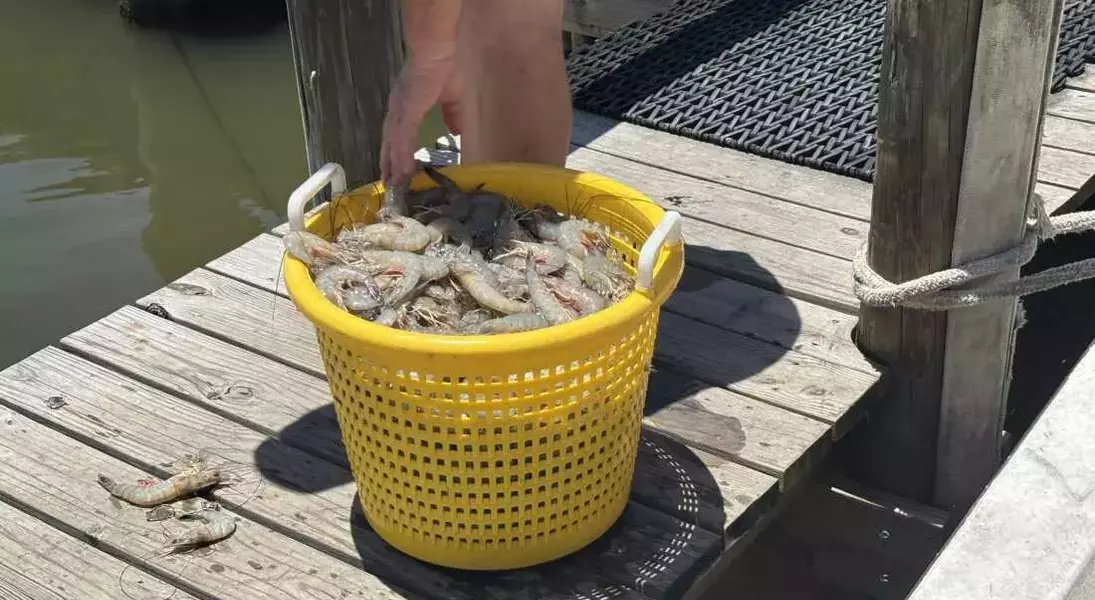
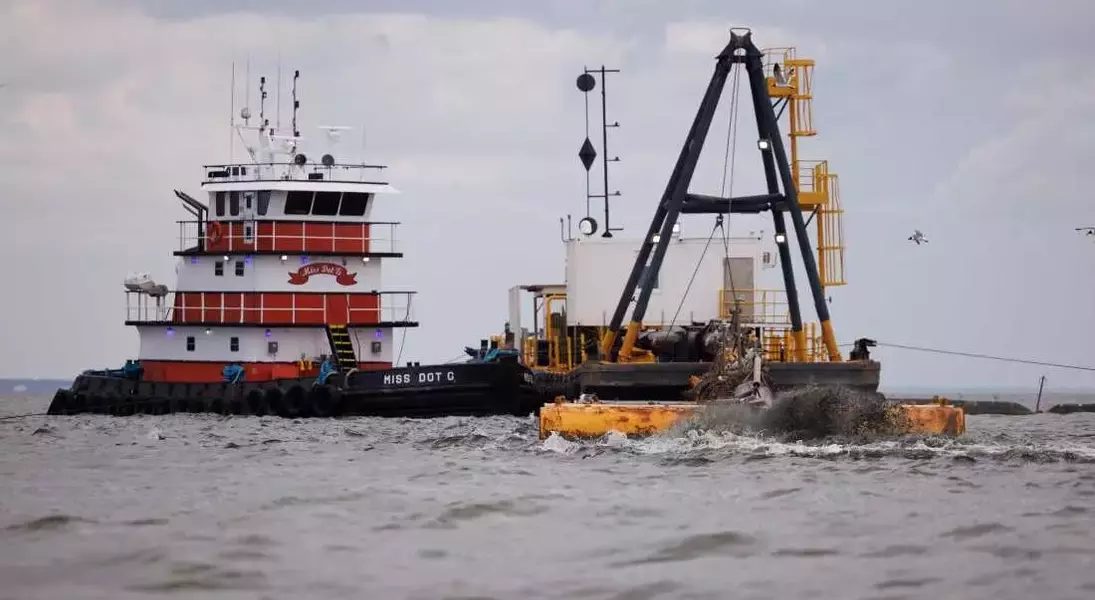
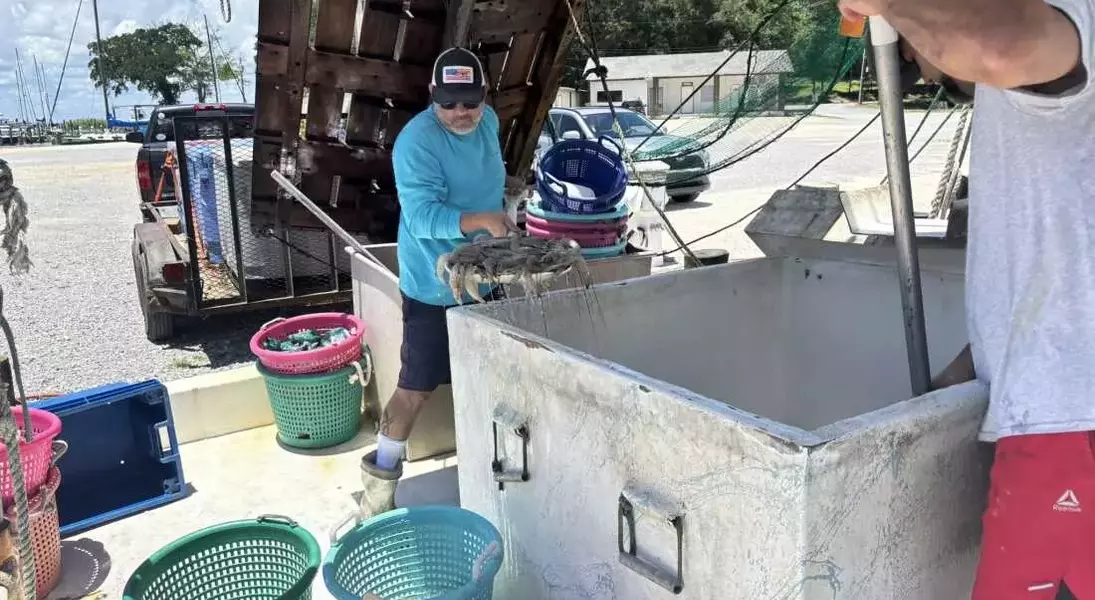
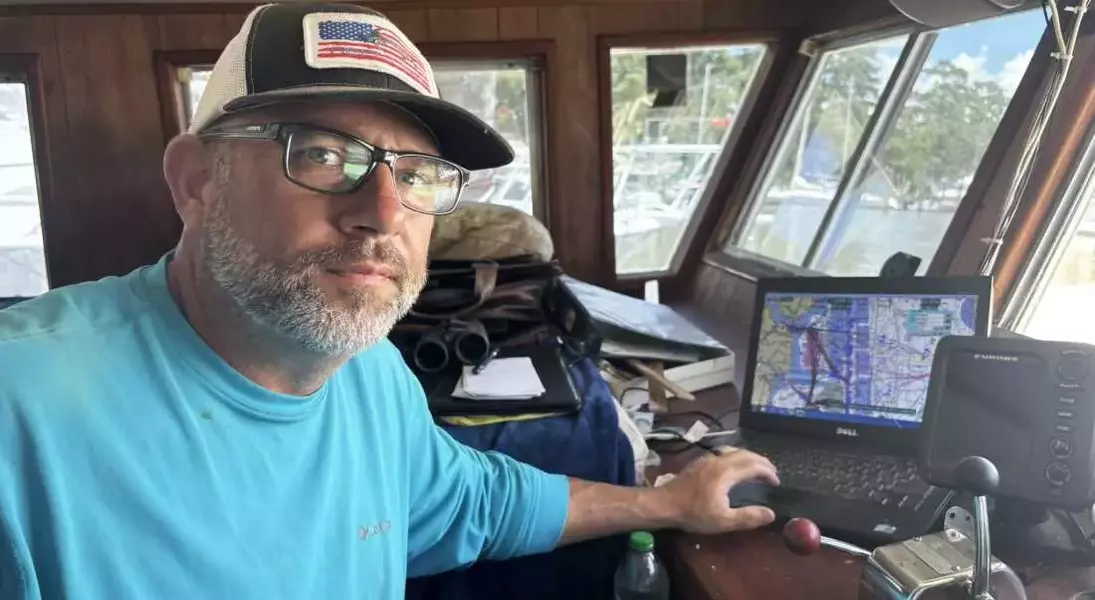
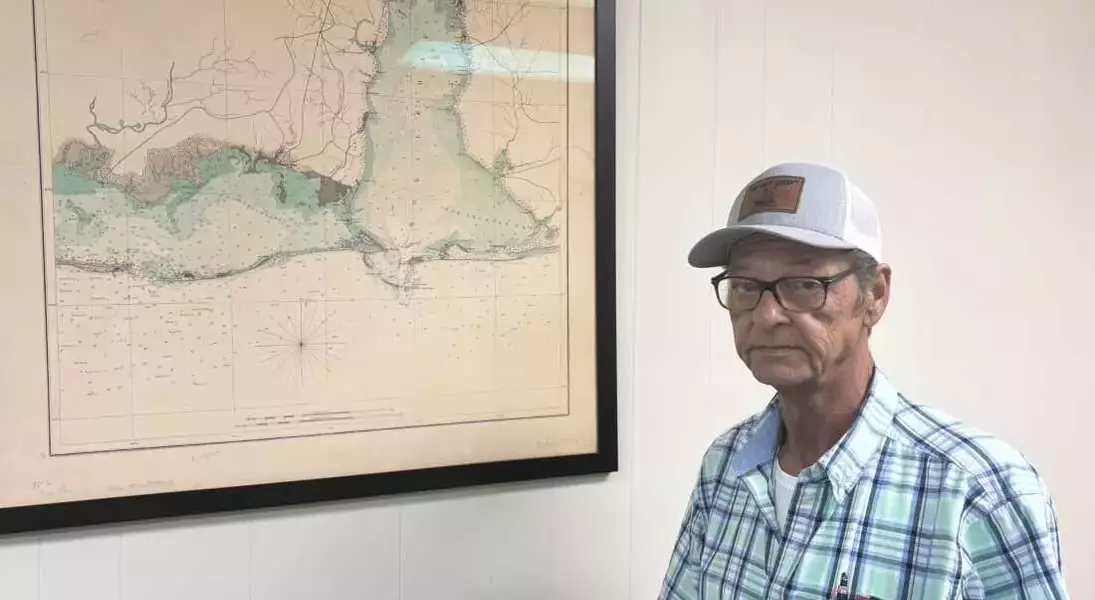
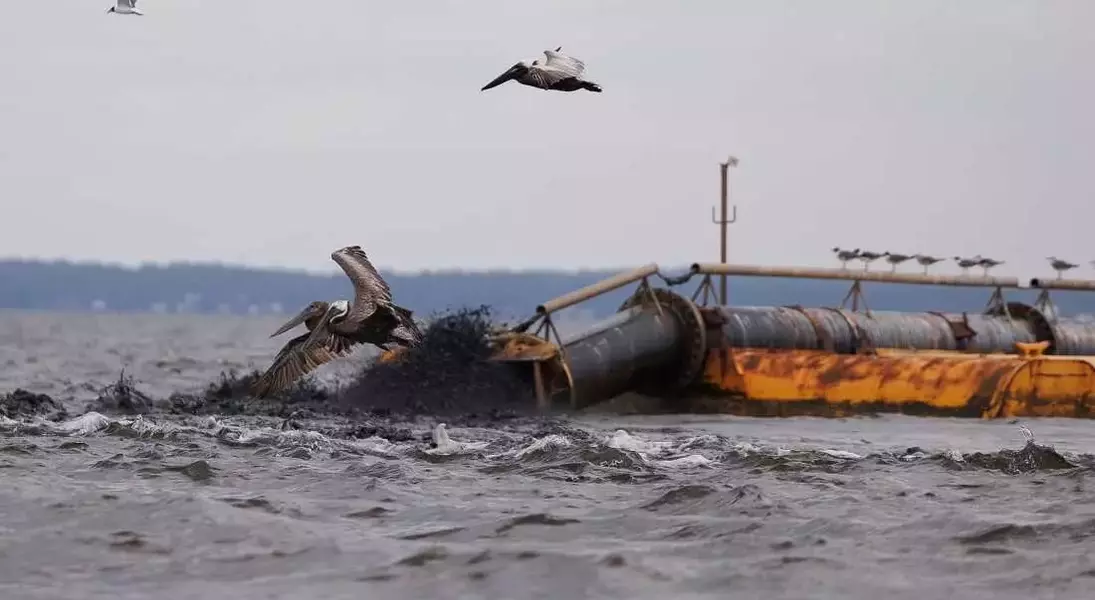

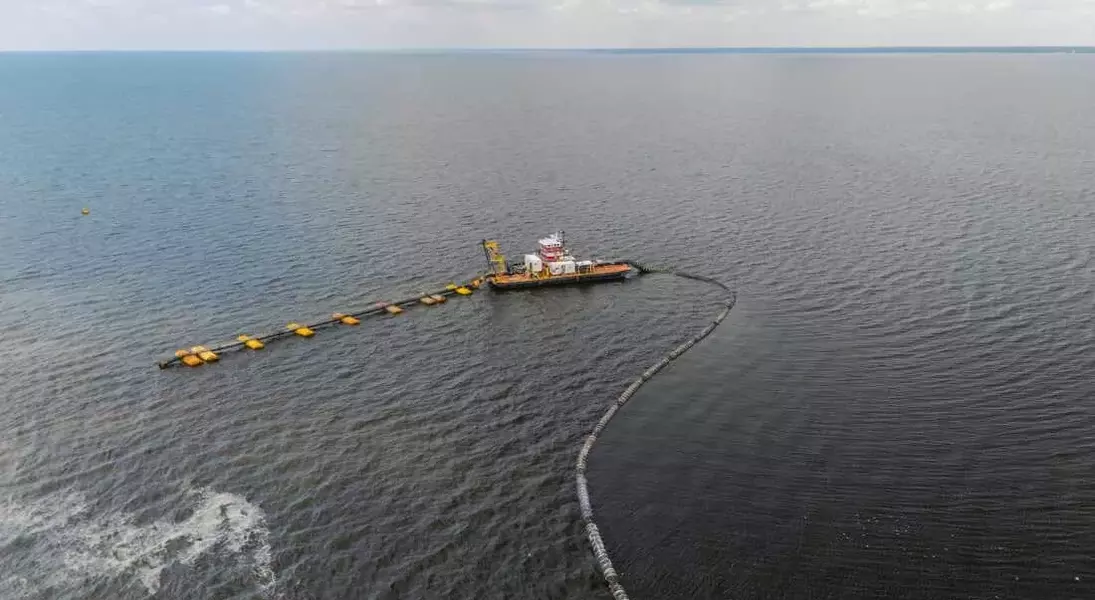



A contentious federal initiative to deepen and maintain the Mobile ship channel in Alabama's Mobile Bay has ignited a fierce debate, pitting economic development against environmental preservation. Commercial fishermen, like seasoned shrimper Patrick Gormandy, report significant declines in their catches, attributing these losses to the dredging operations that deposit excavated sediment back into the bay's delicate ecosystem. This practice, supported by the U.S. Army Corps of Engineers as beneficial for the bay's natural sediment cycle, is viewed by a growing coalition of critics as a detrimental 'mud dumping' that chokes marine habitats. The conflict underscores broader issues of balancing crucial port expansion with the long-term health and sustainability of vital natural resources, prompting calls for congressional intervention and alternative spoil disposal methods.
Controversy Brews Over Mobile Bay Dredging Project
In the vibrant coastal community of Fairhope, Alabama, a pressing environmental and economic concern has emerged, deeply impacting the livelihoods of those who depend on the bountiful Mobile Bay. Patrick Gormandy, a dedicated shrimper who inherited his father's vessel, the Captain Sam B, nearly a decade ago, finds himself grappling with unprecedented challenges. On a recent August afternoon, as he meticulously sorted a meager catch of plump shrimp into plastic containers, Gormandy voiced his dismay, noting a drastic reduction in his harvest—less than half of what he typically secures during the summer peak. This troubling trend is echoed by local oyster harvesters, all pointing to a single culprit: the ongoing federal project to deepen and expand the Mobile ship channel.
This ambitious endeavor, overseen by the U.S. Army Corps of Engineers, aims to facilitate the passage of larger cargo ships from the Gulf of Mexico into the Port of Mobile, thereby boosting the region's economic vitality. However, the method of disposing of the dredged material has become a lightning rod for controversy. Unlike historical practices that might have transported spoils offshore, the Corps is depositing vast quantities of mud and sediment directly back into various sections of Mobile Bay. Gormandy, who has navigated these waters since childhood, asserts that this practice has "ruined all the places that we work," expressing profound concern for the future of his family's enterprise.
The outrage is not isolated to the fishing community. A diverse and unexpected alliance has materialized, comprising commercial and recreational fishing interests, concerned property owners, influential environmental groups such as Mobile Baykeeper, and even prominent Republican elected officials. This formidable coalition is actively lobbying Congress to halt the controversial practice of in-bay spoil disposal. Henry Barnes, the esteemed mayor of Bayou la Batre, a town proudly known as Alabama's seafood capital, articulated the collective sentiment: "We're not against economic development. But there's a right way and a wrong way to do it, and the way they are doing it is wrong." Barnes, a third-generation net builder and elected official, recently traveled to Washington D.C. to present the group's concerns to Alabama's congressional delegation, advocating for compensation for affected fishermen and a reevaluation of federal dumping policies.
William Strickland, executive director of Mobile Baykeeper, offered a visceral account of the dredging's impact during a recent boat tour of the Mobile Bay ship channel. Approaching a dredge pipe outfall, he described the sight and smell of dark, oxygen-depleted mud spewing into the water, attracting seabirds scavenging for remnants amidst the debris. Mobile Baykeeper has relentlessly campaigned against this disposal method for years, now urging Congress to integrate a ban into forthcoming appropriations bills or the Water Resources Development Act. The organization stresses that while dredging is necessary, the method of disposal is negotiable, proposing the use of dredged material for coastal restoration projects or offshore transportation into the Gulf, as was the standard practice between 1986 and 2014. They have even issued a notice of intent to sue the Army Corps under the Endangered Species Act, citing potential violations of numerous environmental statutes.
Conversely, the U.S. Army Corps of Engineers defends its current approach. Justin McDonald, chief of civil works programs and project management for the Mobile District, argues that retaining sediment within Mobile Bay is ecologically beneficial. He contends that this process "renourishes the system," and that the public's perception of "turbidity plumes" is often misguided, given the bay's naturally variable water clarity. McDonald explained that while some material is used for coastal restoration or transported by hopper dredges into the Gulf, the sheer volume—approximately four million cubic yards annually—necessitates the thin layer placement technique within the bay. He assured that the environmental effects are temporary, ultimately contributing to the bay's long-term health.
The Alabama Port Authority robustly supports the project, emphasizing its critical role in enabling the Port of Mobile to accommodate the mega-ships now traversing the expanded Panama Canal, thereby establishing the port as a unique economic asset on the Gulf Coast. Bradley Byrne, former Republican Congressman and current President of the Mobile Chamber of Commerce, echoed this support, citing assessments from the Mobile Bay National Estuary Program and the U.S. Fish and Wildlife Service, which he claims have endorsed the project's environmental viability. Despite personal observations of unchanged silt levels near his Mobile Bay home, Byrne acknowledges the public outcry.
The coalition's "mud dumping" campaign is gaining political momentum. Republican Senator Katie Britt of Alabama recently challenged Corps officials during a congressional subcommittee hearing, advocating for a balanced approach that supports both the Port of Mobile's economic engine and the preservation of natural resources. Senator Britt is pushing for legislation that would mandate at least 70% of dredged material be used for beneficial purposes, such as habitat restoration or wetland creation. Additionally, Alabama State Senator Chris Elliott, a resident of the historic fishing village of Bon Secour, is exploring state-level legislative action, including modeling a law after Maryland's Chesapeake Bay dredge disposal prohibitions. Elliott aims to protect the local seafood industry and the generations who have sustained it, ensuring that economic progress does not come at the cost of a cherished heritage.
The unfolding narrative in Mobile Bay serves as a poignant reminder that progress often arrives with a complex set of trade-offs. As a reporter covering this intricate issue, I am struck by the passionate voices on both sides, each advocating for what they believe is best for their community and environment. The shrimper's plea for the bay's health, rooted in generations of lived experience, stands in stark contrast to the engineer's data-driven assurances of ecological benefit. This situation underscores the critical need for transparent, long-term environmental impact assessments that genuinely consider all stakeholders. It challenges us to rethink how we define and pursue "economic development" – not merely as a measure of throughput and profit, but as a holistic endeavor that sustains both human livelihoods and the delicate natural world on which they depend. Perhaps the most profound lesson from Mobile Bay is that true progress harmonizes prosperity with preservation, rather than sacrificing one for the other.
